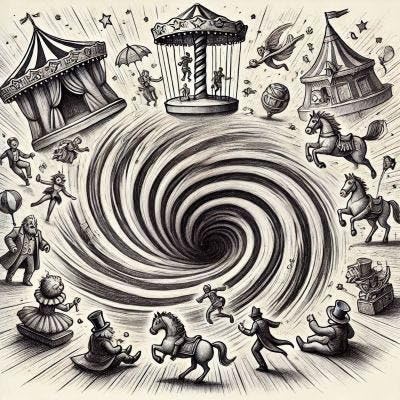The week that marked the first anniversary of Donald Trump’s return to the White House for a second term as US president was particularly turbulent, even by his standards and especially for the transatlantic alliance. If there was even a hint of Trump being capable of self-reflection, one could add that it was a rather embarrassing week for him — on at least three counts.First, after much bluster about Greenland, including hints that if push came to shove he would authorise a military operation to get his hands on territory of long-standing Nato ally Denmark, Trump made a first climb-down and ruled out the use of force in his speech at the World Economic Forum in Davos on Wednesday. He also dropped the threat of imposing tariffs on the eight European Nato members who dispatched a small number of military personnel to Greenland in a highly symbolic show of support.Second, and contrary to earlier pronouncements that the American security guarantee for Europe was conditional on allies’ financial contributions to Nato, he insisted that the US would always be there for its Nato allies. But, as is usually the case with Trump, it was one step forward, two steps back as he cast doubt on them reciprocating in an American hour of need.Worse still, in a subsequent interview with Fox News, he denigrated the sacrifices of allied servicemen and women in Afghanistan, prompting a chorus of justified outrage from across the alliance. After a phone call with the British prime minister, Keir Starmer, on Saturday, and an expression of concern in a message conveyed “through backchannels” from King Charles III, Trump changed his tune. He did not exactly apologise, but he used his TruthSocial platform to praise the bravery and sacrifices of British soldiers in Afghanistan. No other Nato ally has received even that acknowledgement yet.Third, by the end of the week we were also reminded that progress on one of Trump’s flagship projects — making peace between Russia and Ukraine — is as elusive as ever. The US president appeared to have had a constructive meeting with his Ukrainian counterpart, Volodymyr Zelensky, in Davos. But a much-touted agreement on US security guarantees has not been officially signed yet. And no progress has been made either on a deal for Ukraine’s post-war reconstruction.Two rounds of talks between Russian and Ukrainian negotiators in Abu Dhabi over the weekend failed to produce any concrete results apart from an agreement to meet again the following weekend. While Trump’s mediators tried, unsuccessfully, to push Moscow and Kyiv to compromise over the future of Ukrainian territory claimed but not controlled by Russia, the Kremlin’s relentless air and ground campaigns continued unabated — to bomb Ukraine into submission now and increase the costs for its post-war reconstruction later.Contrary to how swiftly he threatened the imposition of tariffs on supposed allies for sending a few dozen soldiers to Greenland, Trump failed, yet again, to get tough on Putin. There is still no sign of a vote on a bipartisan sanctions bill which Trump allegedly greenlit in early January. The bill, in the making since the spring, aims to cripple Russia’s ability to finance its war against Ukraine and “to provide sustainable levels of security assistance to Ukraine to provide a credible defensive and deterrent capability.”One could, therefore, argue that it was a bad week for Trump and a much better week for the rest of the western alliance. After all, Nato is still intact. Europe seems to have discovered more of a backbone and, perhaps more importantly, that pushing back against Trump is not futile. The US president has neither abandoned Zelensky nor walked away from mediating between Russia and Ukraine. And Trump might soon get distracted by plans for regime change in Cuba or Iran, preventing him from wreaking any more havoc in Europe.But such a view underestimates both the damage already done to relations with the US and that yet to come. Consider the issue of Greenland. Trump’s concession to renounce the use of force was, at best, only a partial climb-down. Throughout his speech, Trump reiterated several times that he still wants “right, title and ownership” of Greenland. And as it’s not at all clear what his framework deal actually entails, his closing comments on Greenland included an unambiguous warning to other Nato members that they can “say ‘yes‘ and we will be very appreciative, or ... ‘no’ and we will remember.” There is already, it seems, some advance remembering happening in Trump’s renamed Department of War, which released its new national defence strategy on Friday night. According to the document, the Pentagon will provide Trump “with credible options to guarantee U.S. military and commercial access to key terrain from the Arctic to South America, especially Greenland, the Gulf of America, and the Panama Canal.”On Nato, Trump’s ambivalence towards the ...
続きを読む
一部表示

 7 分
7 分 7 分
7 分 2026/01/267 分
2026/01/267 分

